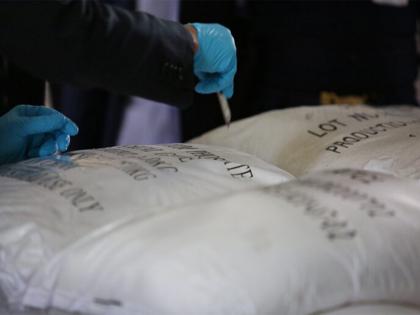China's academic espionage network unmasked as 3 more researchers charged in US bio-smuggling case
By ANI | Updated: November 7, 2025 17:25 IST2025-11-07T17:20:49+5:302025-11-07T17:25:10+5:30
Washington DC [US], November 7 : The US Department of Justice (DOJ) announced that three additional Chinese researchers affiliated ...

China's academic espionage network unmasked as 3 more researchers charged in US bio-smuggling case
Washington DC [US], November 7 : The US Department of Justice (DOJ) announced that three additional Chinese researchers affiliated with the University of Michigan have been charged with smuggling biological materials from China to the United States as part of a major development on the growing concerns about China's misuse of academic exchange programmes, as reported by The Epoch Times.
According to The Epoch Times, in a criminal complaint filed in the U.S. District Court for the Eastern District of Michigan, Bai Xu and Zhang Fengfan face charges of conspiring to smuggle biological materials. At the same time, Zhang Zhiyong is accused of lying to federal agents. The trio was arrested at John F. Kennedy International Airport in New York on October 16, just before boarding a flight to China.
The investigation links the defendants to Han Chengxuan, a researcher from Huazhong University of Science and Technology (HUST) in China. Han was detained in June after arriving in the United States under a J-1 visa, and authorities later discovered that she had shipped petri dishes containing genetically modified C. elegans worms to Michigan while falsely labelling the packages. She pleaded no contest to smuggling and lying to customs officials and was deported in September after serving time.
Prosecutors revealed that several intercepted shipments linked to Han were sent to Bai and Zhang Fengfan, often mislabelled as "plastic plates".
The packages contained genetically modified nematodes and DNA molecules, materials that could pose biosecurity risks. Bai refused to cooperate with customs officials during questioning. Following Han's deportation, the University of Michigan launched an internal investigation, but all three accused researchers declined to participate and were dismissed from the institution. Their J-1 visas were subsequently revoked, making them subject to deportation, as highlighted by The Epoch Times.
When questioned, the suspects identified Han as a member of the Chinese Communist Party (CCP). Prosecutors further connected Han's academic mentor, Liu Jianfen, a senior scientist at HUST, to a key laboratory run by China's Ministry of Education. This latest revelation adds to mounting evidence of a coordinated Chinese campaign to infiltrate U.S. research institutions under the guise of academic collaboration, as reported by The Epoch Times.
Disclaimer: This post has been auto-published from an agency feed without any modifications to the text and has not been reviewed by an editor
Open in app